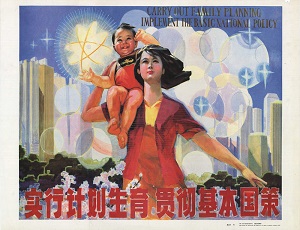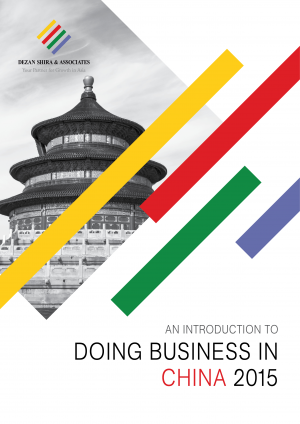China’s New ‘Family Planning’ Regulations: What They Contain and How They’ll Affect Foreign Businesses
 By Dezan Shira & Associates
By Dezan Shira & Associates
Editor: Ruairidh Mcpherson
They can often be difficult to navigate, yet with a population of almost 1.4 billion people, China’s family planning laws are incredibly important. While many people may be aware of China’s previous ‘one child policy’, the country also had a number of other rules and regulations in place designed to control population growth. These included late-marriage or late-childbirth incentives, in the form of extra holidays, to encourage couples to marry later and give birth to just one child.
2016, however, has seen these policies dropped in a dramatic change in the government’s stance. In the closing months of 2015, the Chinese government began its pivot to a looser family planning approach, indicating that it would soon allow couples to have two children. More recently, on January 1 of this year, new family planning legislation was enacted and late-marriage and childbirth incentives dropped, further relaxing population controls. With the average marriage age in China becoming increasingly older, and the ‘one child policy’ being abandoned altogether, many incentives to discourage childbirth are no longer necessary.
New Legislation for 2016 & Impact on Businesses in China
Up until last year, base maternity leave across China stood at 98 days. Those couples that decided to delay childbirth beyond a certain age would be granted with an additional period of leave. Specific regulations varied by province, but typically, ‘late childbirth’ was defined as having a child after the age of 24. Additional leave periods varied from 15 days to 60 days, by province. This no longer stands, however, as the new regulation drops these clauses.
While some out-dated policies have been abandoned, they will likely be replaced, to some extent, with added benefits in the form of extended maternity and paternity leave on a local level. However, despite national policy being effective as of January 1 this year, there have still not been many announcements from provincial governments. The southern province Guangdong is the first in the country to revise its maternity leave rules in the wake of the ‘two-child policy’ being introduced nationwide.
New national and local legislation may cause complications for businesses operating in China on two fronts. Firstly, despite the new legislation applying nationwide, individual provinces may soon publish their own additions. Although China is moving towards a ‘two-child policy’, it’s important to be aware that local changes to maternity leave, and related laws, will likely occur.
Secondly, businesses may be in a vulnerable position during the transition period between the old and new regulations. Local government in Shanghai has taken steps to address concern surrounding this ‘cross-over’ period by stating that only those who were married before December 31 will be able to enjoy the benefits previously associated with late-marriage or childbirth. Nonetheless, it’s important to maintain a cautious approach and be receptive to any changes in the coming weeks, particularly on a local level.
![]() RELATED: Payroll and Human Resource Services
RELATED: Payroll and Human Resource Services
Guangdong Province First to Publish Local-Level Legislation
Being the first area to publish local legislation, Guangdong sets a precedent for what we might expect to see from other provinces in the coming weeks. While national policy is aimed at encouraging more couples to have two children the province has, in addition to scrapping late-marriage and late-childbirth incentives, loosened a number of other rules. Adoption no longer influences your right to give birth to your own children, and restrictions have also been lifted concerning giving birth to more children in cases where a child dies. Notably, maternity leave has been increased from the national baseline of 98 days to 128 days; whilst paternity leave now stands at 15 days, up from 10 days. At this point, those who still choose to have just one child will continue to receive certain benefits, as was previously the case.
A Cautious and Prudent Approach Is Advisable
In late-2015 there existed an examination system for those couples that wished to have a second child. This has now been abolished on a national level and replaced with a far simpler registration procedure, opening up the possibility of a second child to all couples. Despite these advances the Guangdong local government has reiterated that the era of family planning in China is not over – rather, legislation has merely been revised from a ‘one-child policy’ to a ‘two-child policy’.
However, it’s important to bear in mind that each province may end up following a slightly different approach. Shanghai, for example, has yet to publish local legislation but is widely expected to follow a similar approach to Guangdong. Thus far, in line with the state policy, late-childbirth and late-marriage incentives will no longer be offered. Most provinces are expected to publish legislation in the coming weeks or months, likely replacing previous incentives to discourage childbirth with longer maternity leave, and other benefits designed to reverse population trends.
The New Year has heralded significant reform to China’s family planning legislation, as the government looks to shift its course to a ‘two-child policy’ and re-balance the population. Although only Guangdong has so far released accompanying revisions, many other provinces are expected to take similar action and make adjustments to maternity leave and related laws. Late-marriage and late-childbirth benefits have been discarded, but other benefits will now be introduced to take their place. During the ‘cross-over’ period, it is advisable to take a cautious approach, following the new national legislation but also remaining aware of any local revisions that may occur in the opening months of 2016.
|
Asia Briefing Ltd. is a subsidiary of Dezan Shira & Associates. Dezan Shira is a specialist foreign direct investment practice, providing corporate establishment, business advisory, tax advisory and compliance, accounting, payroll, due diligence and financial review services to multinationals investing in China, Hong Kong, India, Vietnam, Singapore and the rest of ASEAN. For further information, please email china@dezshira.com or visit www.dezshira.com. Stay up to date with the latest business and investment trends in Asia by subscribing to our complimentary update service featuring news, commentary and regulatory insight. |
![]()
 Human Resources and Payroll in China 2015
Human Resources and Payroll in China 2015
This edition of Human Resources and Payroll in China, updated for 2015, provides a firm understanding of China’s laws and regulations related to human resources and payroll management – essential information for foreign investors looking to establish or already running a foreign-invested entity in China, local managers, and HR professionals needing to explain complex points of China’s labor policies.
 Employing Foreign Nationals in China
Employing Foreign Nationals in China
In this issue of China Briefing, we have set out to produce a guide to employing foreign nationals in China, from the initial step of applying for work visas, to more advanced subjects such as determining IIT liability and optimizing employee income packages for tax efficiency. Lastly, recognizing that few foreigners immigrate to China on a permanent basis, we provide an overview of methods for remitting RMB abroad.
 An Introduction to Doing Business in China 2015
An Introduction to Doing Business in China 2015
Doing Business in China 2015 is designed to introduce the fundamentals of investing in China. Compiled by the professionals at Dezan Shira & Associates, this comprehensive guide is ideal not only for businesses looking to enter the Chinese market, but also for companies that already have a presence here and want to keep up-to-date with the most recent and relevant policy changes.
- Previous Article The Annual Audit Compliance Process for FIEs in China
- Next Article Transfer Pricing in China – New Report from Dezan Shira & Associates









